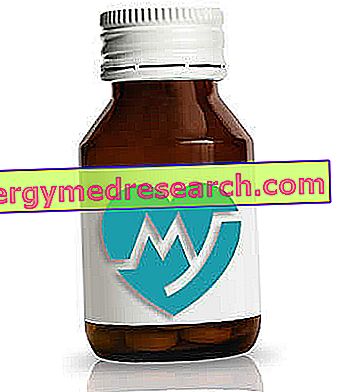Definition
Gingivitis consists of an inflammation of the gums: it is a simple resolution gingival discomfort, which however should not be underestimated, given that neglected gingivitis can be the beginning of real pathologies, such as pyorrhea ( or periodontitis). Prevention is fundamental, therefore an accurate daily oral hygiene associated with frequent checks by the dentist.
Causes
The causes of gingivitis reside essentially in the accumulation of plaque on the surface of the teeth and gums: the plaque is a sticky and opalescent film, an ideal ground for the proliferation of bacteria. The risk of contracting gingivitis increases in the event of pregnancy, diabetes, smoking, alcohol abuse, excessive intake of corticosteroids and antidepressants, neglected dental hygiene and genetic predisposition.
Even a vitamin deficiency can promote oral inflammation, creating gingivitis
Symptoms
In the early stages, gingivitis begins with a mild irritation and inflammation of the gums, which tend to bleed during cleaning. The patient suffering from gingivitis often complains of halitosis, which becomes more marked in proportion to the severity of the disease. Neglected gingivitis degenerates into pyorrhea, therefore the risk of falling teeth exponentially increases.
Information on Gingivitis - Gingivitis Treatment Drugs is not intended to replace the direct relationship between health professional and patient. Always consult your doctor and / or specialist before taking Gingivitis - Gingivitis Treatment Drugs.
drugs
At the initial stage, gingivitis is easily reversible; however, when underestimated, gum inflammation extends, creating more and more damage. Given the ease of resolution of gingivitis at its onset, and the difficulty of healing when neglected, it is important to re-emphasize the importance of daily oral hygiene, which must be repeated at least three times during the day, and periodic check-up by the dentist .
The dental hygiene treatment at home includes:- brush your teeth at least three times a day, with specific toothpaste
- use dental floss at least once a day
- use an antiseptic mouthwash
Professional dental hygiene consists of:
- dental cleaning aimed at removing plaque and tartar
- repeating the cleaning twice a year
The pharmacological treatment for the treatment of gingivitis involves taking pharmacological formulations based on bactericides and anti-inflammatory substances, such as steroids (topical application) and antiseptics (substances with a disinfectant action).
- Hydrocortisone (eg Cortison CHEM, Hydrocouple A ECB): this drug belongs to the class of corticosteroids: in the case of gingivitis, it must be applied topically, in the form of cream or dental paste. The product is useful for reducing inflammation. It is recommended to apply it directly on the inflamed gingiva, two or three times a day, after meals and before going to sleep. In general, it is advisable to apply an additional abundant dose of the drug without making it absorb, so as to create a sort of protective film on the surface of the tooth. In case of failure to improve after 7 days of therapy, it is recommended to change medication. Hydrocortisone is often available in association with antibiotics, such as neomycin and polymyxin B (eg Mixotone).
- Chlorhexidine (eg. Disinfene cream, Golasan mouthwash): rinse your teeth with 15 ml of product, twice a day, after brushing them thoroughly with toothpaste. It is recommended to keep the chlorhexidine-based mouthwash in your mouth for at least 30 seconds before you expel it. The drug is used in therapy for gingivitis due to its disinfectant and anti-inflammatory properties. Do not swallow the mouthwash.
Sometimes, vitamin supplementation is required, since the lack of some very important vitamins can help to accentuate inflammation on the gums.
Notes: even excessive use of particularly aggressive mouthwashes and toothpastes can paradoxically contribute to accentuate the problem of gingivitis: it is therefore recommended to always use dental hygiene products in moderation and to choose quality toothpastes.



